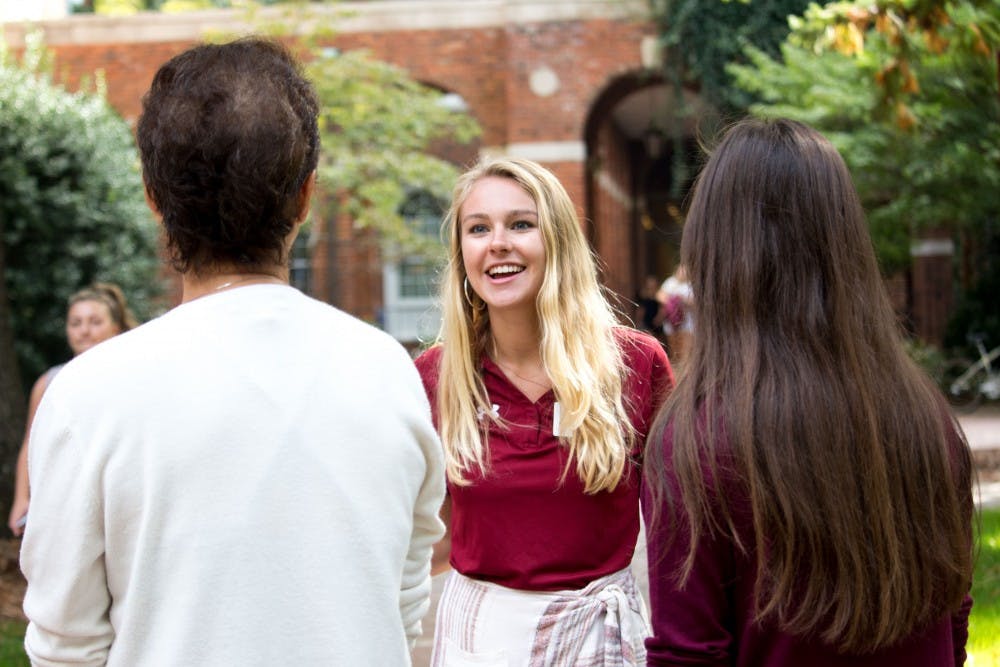Though more than 200 people apply, only 20 get accepted. A 10 percent acceptance rate determines the students most fit to represent the school as a tour guide.
Elon University junior and tour guide Andrew McGann agrees that the application process is challenging. “It’s somewhat of an intensive process,” he said. “There were a lot of different curveballs that went with it that I wasn’t expecting.”
A tour guide is responsible for introducing themselves to families and, according to McGann, giving them a 60-90 minute walking tour around campus after their initial information session. “A lot of people consider us kind of the first face that students and their families see when they come to visit campus,” he said.
Students applying to be tour guides must visit at least one of three interest meetings and provide their contact information. They then receive a Google form to fill out. Based on these, someone from the hiring staff in the admissions department picks a number of students to participate in a group interview process. Applicants who pass the group interview round must hold a mock tour in front of the group at a randomly assigned location on campus.
Important qualities of tour guides include a passion for Elon, a sense of responsibility and ethics and the willingness to constantly learn.
“We seek students who can passionately convey accurate Elon information in the context of their personal Elon experience,” Gsaid reg Zaiser, vice president for enrollment, in an e-mail.
For McGann, tour guides must be personable, knowledgable and adaptable.
“We throw so much at students and families because there’s so much to talk about on campus,” McGann said. “There are some days where you are taking five, six, seven families on tour, so you have to be able to cater to all interests of students and families.”
Tour guides can personalize their tours to a certain extent because they are not required to give any specific knowledge. General knowledge about buildings and traditions is enough, though specific facts are still helpful.
“There’s not necessarily a checklist you have to cover on every tour,” McGann said. “You can give as many statistics as you think are important.”
According to the tour guide interest meeting, tour guides start as a guide event staff and are required to work at all event weekends, although they may miss one Saturday event. They receive paid training in January or February and are required to participate in continued training and attend meetings on a monthly basis. Tour guides also need to be flexible and be available during busy seasons, such as spring break.
Only after a successful spring semester will a guide event staff member be offered a promotion to be a university guide, who have more control over their working hours and may work regular Monday to Saturday tours.
The online application is due Sept. 30 at 5 p.m. The final decisions will be released Nov. 14. A minimum GPA of 2.5 is expected, as well as a clean student conduct record.
For students interested in becoming tour guides, McGann recommends to be ready for uncomfortable questions.
“Political climate is a really big one that I’ve gotten a lot on tour,” he said. “Sometimes also questions about parties, drug use, sexual assault.
“You don’t really talk about them as much on tour, and so when a parent asks you sometimes it can throw you off a little bit,” McGann said. “You have to figure out how to give them the information their looking for and be honest.”


